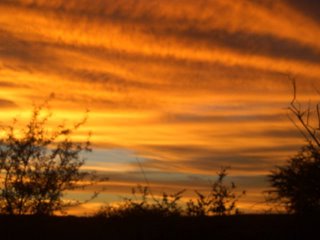TROUBLES IN EGYPT
UN 'shocked' by violence in Cairo.
Police surrounded the migrants, who included women and children
Enlarge ImageThe UN refugee agency has expressed "shock" after up to 20 Sudanese migrants died during an operation by Egyptian police to break up their camp.
The UN High Commissioner for Refugees, Antonio Guterres, said there was no justification for the violence.
Thousands of police stormed the camp - which was set up near UN offices in September - wielding truncheons and firing water cannon at the protesters.
Several children were reported to be among the dead.
The migrants had been demanding that the UNHCR move them to a third country with better conditions.
Thousands of police armed with sticks and shields stormed the small park where the migrants had been camping, at about 0500 (0300 GMT) on Friday.
Our demands are legitimate - it is our right to protest here, the only right we have
Protester
In pictures: Camp cleared
'I was standing on bodies'
Witnesses said some refugees stood defiantly or fought back, while others fled.
"There was a stampede that left 30 of the protesters injured, most of them the elderly and young and they were immediately taken to the hospital where 10 of them died," the interior ministry said.
Later ministry sources raised the death toll to 20, while one of the protest leaders said 26 Sudanese were killed, including two women and seven children.
An official statement from the ministry said 74 police were wounded in the action. It accused migrant leaders of inciting attacks against the police.
Frustrations boil over
Harsh life in protest camp
Witnesses said the migrants, including women and small children, were dragged towards buses as they tried to resist leaving the ramshackle camp, leaving clothes, suitcases and makeshift tents scattered in their wake.
"They want to kill us," shouted one protester. "Our demands are legitimate - it is our right to protest here, the only right we have."
One of the Sudanese asylum-seekers, Napoleon Roberts, said he had been taken to a barracks south of the capital and was being held with about 1,700 others in disgusting conditions.
"We've been kept here since morning in disgust, and no water for drinking and no bathroom... people are staying still with their wounds on their bodies," he told the BBC's Focus on Africa programme.
Staff threatened
Up to 3,000 refugees had been living at the camp since it was set up on 29 September, many of them sleeping in the open.
The demonstration began after the UNHCR stopped aid to those who had applied and failed to get refugee status.
Tension rose, with UN staff who approached the camp being threatened, says the BBC's Imogen Foulkes from the UNHCR base, Geneva.
A spokeswoman for the UNHCR in Cairo, Astrid Stort, said the agency had tried to be accommodating but some of the migrants' demands were "unrealistic".
Sudan said on Friday the refugees should come home, after a peace deal ended its 21-year war with rebels in the south.
But the protesters say it is not safe to return.
A separate conflict in Sudan's western region of Darfur has displaced some two million people and left tens of thousands dead.
BBC NEWS REPORT.



